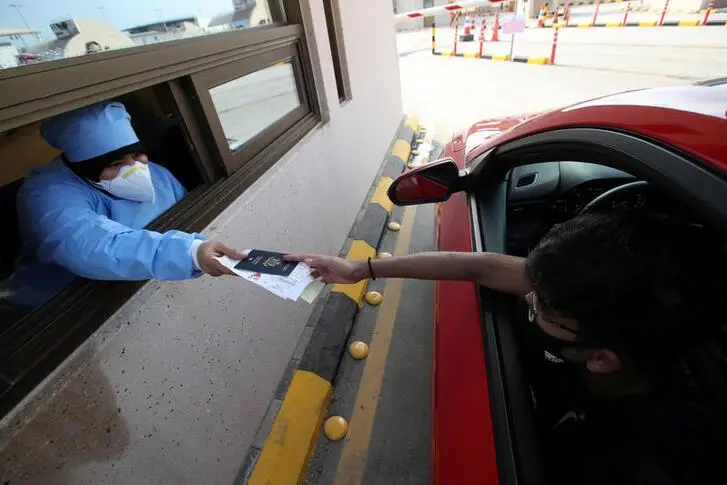PHOTO
The Saudi Cabinet approved the memorandum of understanding between the Saudi Authority for Data and Artificial Intelligence and Bahrain’s Information and e-Government Authority to activate the electronic document.
It will help verify and match traveler information across the King Fahd Causeway for citizens and residents of Saudi Arabia and Bahrain for COVID-19 health requirements.
The health passport was introduced by the SDAIA in January last year and has since been enhanced to display a PCR result and travel insurance policy for coronavirus risks.
It also links the passport with border systems, verifying the traveler's health eligibility when issuing the boarding pass, and integrating with IATA transport systems to display travel requirements. The aim of the SDAIA is to improve the health e-passport to the point that it can be acknowledged as an official document worldwide.
Last July, Saudi Arabia’s Tawakkalna app announced the inclusion of a feature in the health e-passport to review the insurance policy data approved by the Saudi Central Bank and the Council of Health Insurance, which covers the risks of COVID-19 outside Saudi Arabia. The feature aims to facilitate travel procedures.
In November, Saudi Arabia and Bahrain signed an agreement to activate the health passport and achieve technical integration between the Tawakkalna and the Bahraini BeAware Bahrain app.
The aim is to facilitate the movement of travelers, citizens, and residents between the two countries through the King Fahd Causeway.
It also helps to verify their compliance with the health procedures and requirements in force within the framework of fighting COVID-19.
The collaboration between Saudi Arabia and Bahrain aims to ensure the implementation of bilateral preventive and control measures in combating the disease.
It is expected that the electronic link between the two countries will expedite the completion of travel procedures. It will also enable people working at the King Fahd Causeway to immediately verify all the personal and health data of travelers, in addition to enhancing the level of protection and confidentiality of all data.
Bahraini writer Najat Shwaiter said that the agreement contributed to providing a database with “information accuracy and high reliability.”
“This is important because it preserves the privacy of travelers in particular,” she told Arab News.
She said the e-passport would save the time and effort of travelers and “also the employees working with authorities in the border area between the two countries.”
Shwaiter emphasized the importance of the e-passport as it was part of the preventive measures to combat coronavirus, while also ensuring the movement of travelers between the two countries within their health requirements.
She also believed that this move would enhance digitalization and contribute to the reduction of paper transactions.
Copyright: Arab News © 2022 All rights reserved. Provided by SyndiGate Media Inc. (Syndigate.info).





















